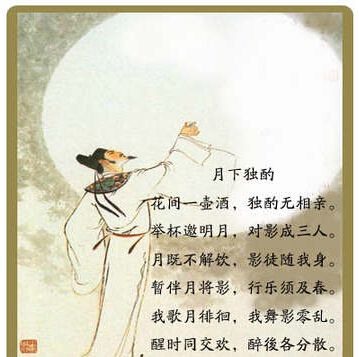《美食祈祷和恋爱》Chapter 32 (66):品味意大利
|
Florence is just a weekend, a quick train ride up on a Friday morning to visit my Uncle Terry and Aunt Deb, who have flown in from Connecticut to visit Italy for the first time in their lives, and to see their niece, of course. It is evening when they arrive, and I take them on a walk to look at the Duomo, always such an impressive sight, as evidenced by my uncle's reaction: 我在佛罗伦萨待了一个周末;周五早晨搭火车北上花不了太多时间,去探望我的泰瑞伯父和黛比伯母,他们从康州飞过来,有生以来头一次来意大利,顺便看看我这个侄女。他们在晚间抵达,我带他们参观主教堂(Duomo),这始终是令人印象深刻的景点,这可从我伯父的反应看出来: "Oy vey!" he says, then pauses and adds, "Or maybe that's the wrong word for praising a Catholic church . . ." “赞!”他说,然后停顿一下,又说,“或许这么赞美天主教堂有点用词失当……” We watch the Sabines getting raped right there in the middle of the sculpture garden with nobody doing a damn thing to stop it, and pay our respects to Michelangelo, to the science museum, to the views from the hillsides around town. Then I leave my aunt and uncle to enjoy the rest of their vacation without me, and I go on alone to wealthy, ample Lucca, that little Tuscan town with its celebrated butcher shops, where the finest cuts of meat I've seen in all of Italy are displayed with a "you know you want it" sensuality in shops across town. Sausages of every imaginable size, color and derivation are stuffed like ladies' legs into provocative stockings, swinging from the ceilings of the butcher shops. Lusty buttocks of hams hang in the windows, beckoning like Amsterdam's high-end hookers. The chickens look so plump and contented even in death that you imagine they offered themselves up for sacrifice proudly, after competing among themselves in life to see who could become the moistest and the fattest. But it's not just the meat that's wonderful in Lucca; it's the chestnuts, the peaches, the tumbling displays of figs, dear God, the figs . . . 我们在雕塑庭园中央观看萨宾人(Sabines)遭掠夺,却没有人能做半点儿事阻止;我们向米开朗基罗致敬,去科学博物馆,从城市周围的山坡观景。而后我留伯母和伯父独自享受他们剩下的假期,我则继续单人行,去了富庶的卢卡(Lucca);这个托斯卡纳小镇以肉铺闻名,意大利最好的肉片在全镇各处的店家展现其"你明白自己想要它"的肉感。各种你能想象的尺寸、颜色、来历的腊肠,就像女士的腿穿上撩人裤袜般丰满迷人,悬挂在肉铺天花板。性感的火腿挂在橱窗内,犹如阿姆斯特丹的高级娼妓向人招手。死去的鸡看起来丰腴而满足,使你想象它们在世时彼此争相成为最肥嫩的鸡,然后 引以为傲地献出自己。然而卢卡最让人叫好的不单是肉,还有栗子、桃子、满坑满谷的无花果,天啊,无花果…… The town is famous, too, of course, for having been the birthplace of Puccini. I know I should probably be interested in this, but I'm much more interested in the secret a local grocer has shared with me—that the best mushrooms in town are served in a restaurant across from Puccini's birth-place. So I wander through Lucca, asking directions in Italian, "Can you tell me where is the house of Puccini?" and a kind civilian finally leads me right to it, and then is probably very surprised when I say "Grazie," then turn on my heel and march in the exact opposite direction of the museum's entrance, entering a restaurant across the street and waiting out the rain over my serving of risotto ai funghi. 当然,卢卡以普契尼的出生地而闻名。我知道我该对这点感兴趣,但我更着迷于当地一家杂货商跟我分享的秘密——全镇煮得最好的草菇位于普契尼出生地对街的餐厅。于是我在卢卡到处逛,说意大利语问路:“请告诉我普契尼之家在哪?”一位亲切的市民最后直接领我去那里,他肯定大吃一惊,因为我道过谢后,转身朝博物馆入口的反方向走去,进了街对面的餐厅点了risotto ai funghi(野菇炖饭)等雨停。 I don't recall now if it was before or after Lucca that I went to Bologna—a city so beautiful that I couldn't stop singing, the whole time I was there: "My Bologna has a first name! It's P-R-E-T-T-Y." Traditionally Bologna—with its lovely brick architecture and famous wealth—has been called "The Red, The Fat and The Beautiful." (And, yes, that was an alternate title for this book.) The food is definitely better here than in Rome, or maybe they just use more butter. Even the gelato in Bologna is better (and I feel somewhat disloyal saying that, but it's true). The mushrooms here are like big thick sexy tongues, and the prosciutto drapes over pizzas like a fine lace veil draping over a fancy lady's hat. And of course there is the Bolognese sauce, which laughs disdainfully at any other idea of a ragù. 我现在记不得是在去卢卡之前或之后才前往博洛尼亚——此城之美,使我在那里的整段时间都不断在哼歌:"波隆那的姓氏,叫作美丽!"传统上,波隆那——拥有漂亮的砖造建筑以及闻名的财富——被称作"红色、肥胖、美丽"的城市(这三个形容词,也可以拿来当做本书的书名)。这儿的食物比 罗马明显好得多,或者只是奶油用得较多的关系。甚至博洛尼亚的冰也好得多(这么说使我觉得有点对不住,但这是事实)。这里的草菇就像厚大的性感舌头,烟熏火腿覆盖在比萨饼上,就像精致的蕾丝面纱掩在漂亮的女帽上。当然还有波隆那肉酱,不屑地嘲笑其他任何一种肉酱。 It occurs to me in Bologna that there is no equivalent in English for the term buon appetito. This is a pity, and also very telling. It occurs to me, too, that the train stops of Italy are a tour through the names of the world's most famous foods and wines: next stop, Parma . . . next stop, Bologna . . . next stop, approaching Montepulciano . . . Inside the trains there is food, too, of course—little sandwiches and good hot chocolate. If it's raining outside, it's even nicer to snack and speed along. For one long ride, I share a train compartment with a good-looking young Italian guy who sleeps for hours through the rain as I eat my octopus salad. The guy wakes up shortly before we arrive in Venice, rubs his eyes, looks me over carefully from foot to head and pronounces under his breath: "Carina." Which means: Cute. 我在博洛尼亚突然想到,英语中没有相当于“buon appetito”的用词。这很可惜,也很说明问题所在。我还想到,意大利的火车停靠站带你经过全世界最出名的食物名与酒名:下一站,帕尔玛(Parma)……下一站,博洛尼亚……下一站,即将抵达蒙特普齐亚诺(Montepulciano)……火车内当然也有食物——小三明治和好喝的热。若窗外下雨,吃着点心全速前进更是一大快事。有回搭长途火车,我和一个好看的意大利年轻男子同坐一个包厢,他在雨中睡了好几个小时,我则吃着我的章鱼沙拉。男子在我们即将抵达威尼斯的时候醒来,揉揉眼睛,把我从头到脚仔细看了一遍,低声说“Carina”。是“可爱”的意思。 "Grazie mille," I tell him with exaggerated politeness. A thousand thanks. “我以夸大的客气语调回应他。”万分感谢。 |








